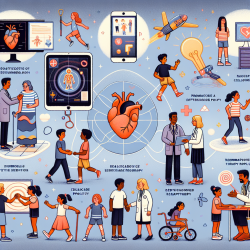Introduction to High-Level Wellness
In the realm of speech-language pathology, understanding the broader context of health is crucial for creating impactful interventions. The concept of "high-level wellness," introduced by Halbert L. Dunn, emphasizes an integrated method of functioning aimed at maximizing individual potential within their environment. This concept aligns with the planetary health paradigm, which considers the interconnections between personal, community, and planetary health.
The Relevance of Planetary Health
Planetary health, as discussed in the research article "Preventive Medicine for Person, Place, and Planet: Revisiting the Concept of High-Level Wellness in the Planetary Health Paradigm," underscores the intricate connections between human health and the vitality of Earth's natural systems. This perspective is particularly relevant in the context of non-communicable diseases (NCDs) and environmental degradation, which are increasingly recognized as interrelated challenges.
Implications for Speech-Language Pathologists
As practitioners dedicated to enhancing children's communication skills, speech-language pathologists can leverage the insights from the planetary health paradigm to improve outcomes. Here are a few ways to integrate these concepts into practice:
- Holistic Assessment: Consider the child's environment, including social, economic, and ecological factors, when assessing their communication needs.
- Interdisciplinary Collaboration: Work with other professionals, such as educators and environmental health experts, to address broader determinants of health that impact communication development.
- Advocacy and Education: Educate families and communities about the importance of a healthy environment for optimal child development, advocating for policies that promote planetary health.
Encouraging Further Research
The planetary health paradigm invites speech-language pathologists to engage in research that explores the connections between environmental factors and communication development. By contributing to this body of knowledge, practitioners can help shape interventions that are not only effective but also sustainable and equitable.
Conclusion
Incorporating the principles of high-level wellness and planetary health into speech-language pathology practice can lead to more comprehensive and impactful interventions for children. By considering the broader context of health, practitioners can better support the development of communication skills and overall well-being.
To read the original research paper, please follow this link: Preventive Medicine for Person, Place, and Planet: Revisiting the Concept of High-Level Wellness in the Planetary Health Paradigm.










